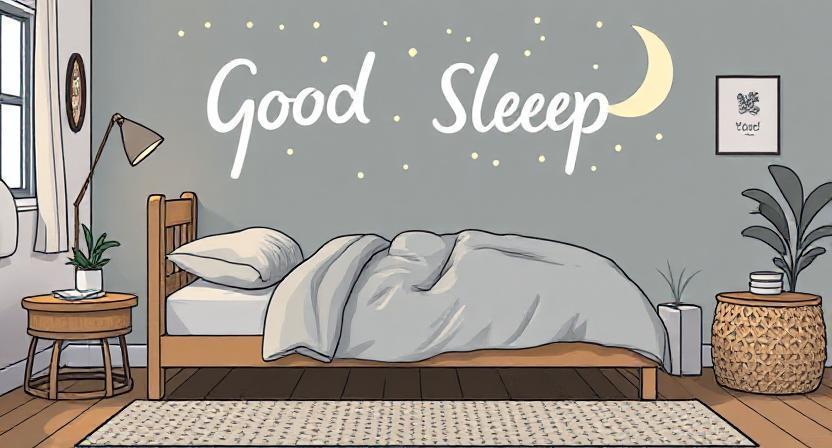
Post by : Sami Jeet
A good night’s sleep is as important as healthy eating and exercise, yet millions face sleep issues every night. From tossing and turning to waking up too early, poor sleep affects mood, productivity, and overall health. While medication may seem like a quick solution, it often brings side effects and dependency. The real key is to use natural sleep hacks that train your body to rest better. This article explores simple, science-backed ways to improve sleep without pills.
The body runs on a circadian rhythm, a natural clock that regulates sleep and wake cycles. Going to bed and waking up at different times each day confuses this rhythm. A consistent schedule helps regulate melatonin production, making it easier to fall asleep. Set a fixed bedtime and wake-up time, even on weekends. Avoid long naps in the day, as they disrupt night sleep.
Your brain needs signals that it’s time to wind down. A relaxing routine before bed prepares the body for rest. Simple activities such as reading, journaling, or listening to soft music can help. Taking a warm shower lowers body temperature and encourages sleep. Gentle stretches or breathing exercises relax tense muscles and reduce stress.
Phones, laptops, and TVs emit blue light that delays melatonin release. This tricks the brain into thinking it’s still daytime. Avoid screens at least one to two hours before bed. If work demands late-night screen use, switch devices to night mode or use blue-light filter glasses. Replace scrolling with calming activities like meditation or listening to an audiobook.
Your bedroom should support relaxation. Keep the space cool, dark, and quiet. The ideal temperature is 65–70°F (18–21°C). Use blackout curtains or an eye mask to block outside light. White noise machines or soothing sounds can mask disruptions. A supportive mattress and pillows improve comfort and prevent body aches, ensuring uninterrupted rest.
Evening food and drink choices play a big role in sleep quality. Caffeine in coffee, tea, or energy drinks can stay in the body for up to six hours, making it harder to fall asleep. Alcohol may cause drowsiness initially but disrupts deep sleep cycles. Going to bed either too hungry or too full can also disturb rest. A light snack such as almonds, bananas, or warm milk can support better sleep.
An overactive mind is one of the biggest obstacles to sleep. Stress and worry increase alertness, making it difficult to relax. Journaling before bed helps clear thoughts. Mindfulness meditation calms racing ideas and promotes relaxation. The 4-7-8 breathing technique—inhaling for 4 seconds, holding for 7, and exhaling for 8—slows the nervous system and reduces anxiety.
Regular exercise improves sleep quality by balancing hormones and reducing stress. Aim for 30 minutes of moderate activity daily. Morning or afternoon workouts are best, as intense exercise before bed can energize the body and delay rest. Even light activities such as walking, stretching, or yoga support better sleep cycles.
Certain natural remedies are known to aid sleep. Chamomile, lavender, and valerian root teas have calming effects. Foods rich in magnesium, such as spinach and pumpkin seeds, support muscle relaxation. Aromatherapy with essential oils like lavender or sandalwood creates a calming environment in the bedroom.
Small habits can silently damage sleep. Late-night social media scrolling overstimulates the brain. Working in bed confuses the mind, which should only associate the bed with rest. Nicotine from smoking or vaping acts as a stimulant, delaying sleep. Identifying and eliminating these disruptors is key.
Improving sleep naturally takes time. Think of it as retraining the brain and body. Start with small changes and gradually build healthier habits. Keep a sleep journal to track patterns and progress. If insomnia persists for several weeks, seek help from a sleep specialist, as underlying issues like sleep apnea may need medical attention.
Quality sleep is not a luxury but a necessity. By following these natural, medication-free hacks, you can restore healthy sleep patterns and improve overall well-being. From setting routines and limiting screen use to managing stress and creating the right environment, small changes can deliver big results. Better sleep leads to sharper focus, stronger immunity, improved mood, and a healthier life.
Q1. Can these hacks replace sleeping pills?
Yes, for most people with mild sleep issues, these natural strategies are enough. Chronic insomnia, however, should be treated by a doctor.
Q2. How long will it take to see improvements in sleep naturally?
Most people notice positive changes within two to four weeks of consistent habits.
Q3. Does drinking warm milk before bed help?
Yes, warm milk contains tryptophan, which supports melatonin production, aiding better sleep.
Q4. Are melatonin supplements safe for long-term use?
Melatonin is best used short-term and under medical supervision. Building natural habits is safer long-term.
Q5. Can exercise improve sleep quality?
Absolutely. Regular exercise reduces stress and promotes deeper, restorative sleep cycles.










Curry Powers Warriors to Nail-Biting 109-108 Victory Against Spurs
Stephen Curry's 49 points propel the Warriors to a dramatic 109-108 NBA Cup triumph over the Spurs,

India Advances to Semi-Finals After Thrashing USA in Women’s Blind T20 World Cup
India secured a dominant ten-wicket victory over the USA, advancing to the semi-finals in the Women’

South Africa's Early Advantage as India Struggles on Day Two
On Day Two, India reached 138-4 as South Africa took three early wickets, complicating matters with

Kenta Nishimoto Defeats Lakshya Sen in Japan Masters Semifinal
Lakshya Sen's journey in the Japan Masters ends after losing to Kenta Nishimoto 19-21, 21-14, 12-21

Kenta Nishimoto Defeats Lakshya Sen in Japan Masters Semifinals
Lakshya Sen's run at the Japan Masters concludes with a loss to Kenta Nishimoto in the semifinals, 1

Major IPL Trade: Jadeja Joins Royals as CSK Signs Samson
In a significant IPL trade, CSK has acquired Sanju Samson from Rajasthan Royals in exchange for Ravi